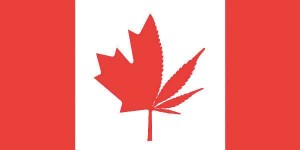A major election is coming in a matter of months, and the results could decide the fate of legal marijuana in North America. But this campaign season has nothing to do with Donald Trump, at least not yet.
 Canadians will go to the polls this October and make a stark choice between the conservatism of the past and the progressive tide sweeping the rest of the continent. If they tilt to the left, cannabis could soon be legal north of the border; if they lean right, drug-policy reform could stall.
Canadians will go to the polls this October and make a stark choice between the conservatism of the past and the progressive tide sweeping the rest of the continent. If they tilt to the left, cannabis could soon be legal north of the border; if they lean right, drug-policy reform could stall.
That should matter to Americans. The faster Canada reforms, the faster reform is likely to happen here, too. And a Canadian holdout could slow change in U.S. states with tentative voters.
Marijuana is just one issue at play in this year’s election, and a relatively small one at that. But the race is expected to be close, and even a minor issue could make the difference.
Technically, Canadians don’t elect their national leaders. Instead, they vote for members of Parliament. The party with the most seats gets to appoint the heads of government departments, including the prime minister. These appointments typically go to party leaders.
Conservatives in power since 2006
The Conservative Party currently controls the government and has since 2006. Conservative Prime Minister Stephen Harper is still relatively popular, but his party is trailing the neophyte New Democrats in the polls. This left-leaning party has never held a majority in Parliament before.
It’s not clear they can pull that off this year, either. But if they can manage to out-poll the Conservatives, even without a majority, they could form a coalition government with the Liberal Party.
Until Harper’s rise in 2006, the Liberals dominated Canadian national politics for decades. But their elitist image and muddled politics have hurt them with voters. They could still have a powerful voice, but they’re unlikely to run the government alone again.
Longest Canadian election campaign in history
 At 11 weeks, this will be the longest federal campaign season in Canadian history. Elections there are limited by law, unlike the United States, where presidential contests can exceed 18 months.
At 11 weeks, this will be the longest federal campaign season in Canadian history. Elections there are limited by law, unlike the United States, where presidential contests can exceed 18 months.
The “long” season should give Canadians plenty of time to talk about cannabis. The nation’s medical marijuana program is widely popular, and support for recreational legalization is growing, but it’s unclear which way voters are likely to go in October.
Current odds suggest the New Democrats and the Conservatives could tie in terms of seats in Parliament, but no party stands to win an outright majority. In that case, either the New Democrats or the Conservatives could form a weak minority government, or the two left-wing parties could team up and form a coalition government.
That may be the most likely outcome. It would mean a sharp change on a long list of political issues, including pending international trade pacts and the Keystone Pipeline project. It could also offer the best hope for legalization, since both the Liberals and the New Democrats support the idea. The Conservatives oppose all reform, including medical marijuana.
Why the Canadian Elections Matter
No comments:
Post a Comment